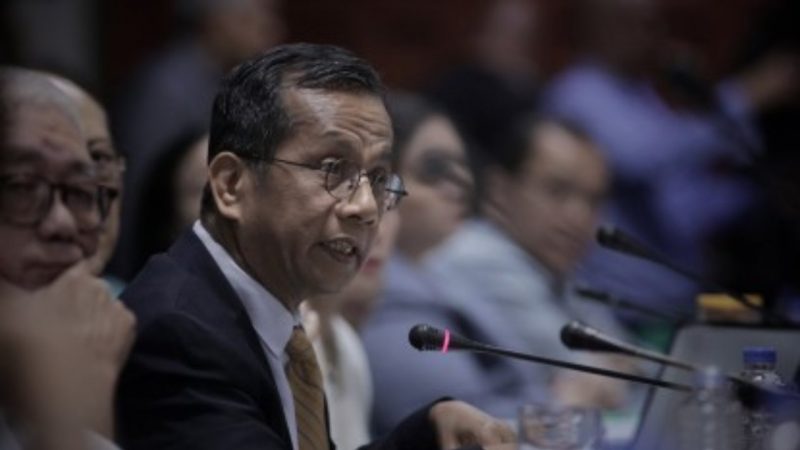MANILA – Socio-economic Planning Secretary Arsenio Balisacan on Tuesday assured senators that the Marcos administration’s assumptions of a 6 to 7 percent gross domestic product (GDP) growth rate for the rest of 2023 and a 6.5 to 8 percent economic growth from 2024 until 2028 are “achievable.”
During the Development Budget Coordination Committee (DBCC) briefing with the Senate Committee on Finance on the proposed PHP5.768 trillion national budget for 2024, Balisacan explained that the economy needs to grow by 6.6 percent in the second half to achieve the lower projection target growth which is 6 percent for the entire year.
“We believe that’s very achievable. We haven’t lost the value of the underspending in the first semester that we can deploy in the second semester. That will actually add to the assumed growth of 6.2 percent for the second semester. So, you will have all these underspent resources put into the second semester,” Balisacan said.
“Inflation is also expected to further decelerate. That would buoy consumer demand, investment, and the rest of the economy. So, the 6.6 (percent) is very much achievable assuming that there’s other risks that I’ve mentioned earlier, you don’t have another major typhoons that can damage a big part of our economy,” he added.
Balisacan was answering the question of Senate Pro Tempore Loren Legarda on whether the economic team is still confident that the projection for 2023 can still be achieved given the average GDP growth rate of 5.3 percent during the first six months of 2023.
In the first half of 2023, the government came up short on its spending program by 6.6 percent with actual expenditures only amounting to PHP2.411 trillion.
As of the end of July 2023, the Department of Budget and Management had already released PHP4.89 trillion or 93 percent of the 2023 national budget.
When asked again by Legarda about the plans of the national government on how to peg inflation at 3 percent considering that more strong typhoons are expected to enter the country by the second half of the year.
The projection for the entire year of 6 to 7 percent, Balisacan explained, already took into account the inflation that was happening at the end of 2022 which was already very high.
“And so the deceleration of inflation from that point to that second semester is going to be a plus factor. I think the big part now of the current inflation is domestic and that’s how we are managing our food supply, our non-food items like electricity and it does appear that the food inflation is decelerating,” he said.
Learning from the lessons in managing food supplies and with the logistics improving, Balisacan said the country could further decelerate inflation. (PNA)







